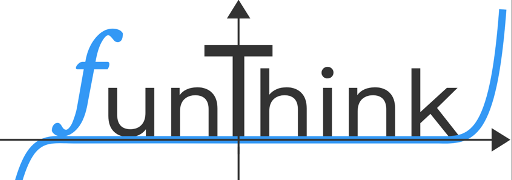FunThink – Enhancing functional thinking from primary to upper secondary school

|
Europees (Erasmus+) project 2020-2022
Penvoerder Partners in Nederland |
Abstract
Functional thinking is not only highly relevant within mathematics, but also crucial in everyday and professional life. It is, for instance, required, when modelling the spread of a virus such as the current COVID-19 as an exponential growth or when monitoring the redemption of bank credit. Unfortunately, there is vast empirical evidence that functional thinking causes a lot of difficulties for students what may have serious consequences such as school failure, and affect correspondingly, their private success as well as their social and professional participation.
Embedded in the program “Cooperation for innovation and the exchange of good practices”, the project FunThink aims at improving this situation through enhancing students’functional thinking. The cooperating institutions are Ludwigsburg University of Education (Germany; coordinator), University Pavla Jozefa Safarika in Kosice (Slovakia), University of
Cyprus in Nicosia, Pedagogical University of Cracow (Poland), Hogeschool iPabo in Amsterdam and Utrecht University (the Netherlands). Each of these institutions and in particular the members of the project team will contribute to the project their specific expertise and longstanding experience in supporting students through effective teaching-learning-settings, in
pre-service teacher education as well as in professional development for in-service teachers – with regard to mathematics. Although the partners focus on different types of schools and have their specific curricular and cultural background, they share the common vision that mathematics education can be significantly improved by enhancing functional thinking
from primary to upper secondary school. For this purpose, effective teaching-learning-settings as well as adequate pre- and in-service teacher education are crucial.
Aim
The main goal of this project is to improve functional thinking in a transnational perspective drawing on the partners’ specific and complementary expertise. Therefore, one of the project’s objectives is to develop digital-embodied, situated learning environments for inquiry that can be implemented in mathematics classroom from primary to upper secondary
school in order to support students’ functional thinking. These learning environments will innovatively combine promising elements such as learning with digital tools, real-world situations, and embodiment activities through inquiry that all have empirically proven their benefit in teaching about functions but have never been merged in a coherent way.
Moreover, they will be worked out – alongside with extensive teacher guides – in in the sense of a comprehensive learning trajectory, i. e., they will enhance functional thinking in a coherent and continuous way bridging between different school grades, and hence, overcoming teaching different function classes and aspects in an isolated, non-interrelated way.
As a further project objective, the conception of a corresponding pre-service teacher course is intended to enable pre-service teachers to effectively enhance their future students’functional thinking through these learning environments. Particularly edited classroom videos showing more and less effective implementations of the learning environments will particularly encourage the reflection and professional exchange between the course participants about supporting students’ functional thinking – an important prerequisite for their future professional success.
The learning environments and pre-service teacher course will account for and merge the partners’ varying cultural and curricular requirements, and hence, they will provide high transfer potential. In order to enlarge the beneficiaries of our innovative and promising outputs, a further project objective is to launch an open educational, interactive and multilingual digital platform equipped with the project outputs. An integrated user forum will afford for teachers, teacher educators and researchers to engage in transnational interaction, exchange ideas and experiences, discuss practice and learn from each other with regard to functional thinking and beyond. The project outputs and corresponding empirical evaluation results indicating their effectiveness will be provided in the six languages English, German, Dutch, Polish, Slovak and Greek; together with the worldwide availability of the digital platform we expect a wide-spread and sustainable implementation of the project outputs at the level of schools and universities and therefore an impact on mathematics education across Europe.
In particular, the digital platform will provide mathematics teacher educators from all over Europe and beyond with extensive support for adopting our innovative course concept in their local teacher courses. In addition, regular transnational project meetings and the collaboratively elaborated multiplier events will disseminate the project outputs and support their extensive exploitation in European countries and beyond.
Verwijzingen
- Doorman, M., Drijvers, P., Gravemeijer, K., Boon, P. and Reed, H. (2012). Tool Use and the Development of the Function Concept: From Repeated Calculations to Functional Thinking International Journal of Science and Mathematics Education, 10(6), 1243–1267. 10.1007/s10763-012-9329-0
- Smith, E. (2008). Representational thinking as a framework for introducing functions in the elementary curriculum. In J. L. Kaput, D. W. Carraher and M. L. Blanton (Eds.), Algebra in the early grades (pp. 133–160): Taylor and Francis Group.



